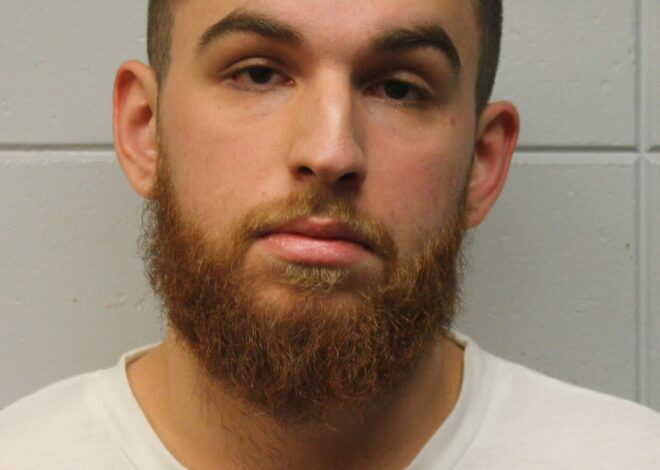Should South Dakota Ease The Path To A Job For Ex-cons?
SIOUX FALLS, S.D. (AP) — Dontisha Collado feels hopeless about her job search.
After a series of arrests for petty thefts and assaults, the Sioux City, Iowa, woman recently moved to Sioux Falls in hope of a fresh start. She wants a job in retail, but her past still follows her onto every job application.
As soon as she checks “yes” to indicate she has been convicted of a crime, she’s certain employers will dismiss her.
Now, she doesn’t know how she will avoid returning to her former lifestyle if no one will give her another chance, the Argus Leader ( ) reported.
“I’m like, forget this mess. Forget trying to get an interview, forget trying to get dress clothes, forget trying to do my best since I ruined my life and can’t get a job,” Collado said.
In another place, Collado might stand a better chance of getting a foot in the door with potential employers. Seventeen states in recent years, including Minnesota, have adopted so-called “ban the box” laws. They prohibit employers from asking about criminal convictions on a job application.
buy lipitor online https://www.pharmalucence.com/wp-content/languages/new/generic/lipitor.html no prescription
The laws are part of a growing movement to re-evaluate and remove some of the barriers that ex-offenders face when released. The theory is that by giving them a better chance to find stable housing and employment, they’ll be less likely to return to crime again.
A report released Thursday by The Pew Charitable Trusts’ Stateline project shows South Dakota has 445 laws that restrict the rights of ex-offenders. Most criminals can’t expunge or seal their record, and the state hasn’t embraced a “ban the box” rule, though some lawmakers this week said they would be open to discussing it.
A separate report from Pew this week highlighted the success of South Dakota’s recent criminal justice reforms,
“For those low-level crimes like petty theft, we embedded in the statute a presumption of probation to discourage judges from putting people into prison as a habit,” Gov. Dennis Daugaard told Stateline.
State Sen. Craig Tieszen, R-Rapid City, is among those who thinks the next criminal justice reform should include a discussion of how to help people leaving prison as a way to prevent them from returning.
“These people should have an opportunity to re-enter the workforce,” Tieszen said. “Obviously, they won’t be automatically hired, but they deserve equal opportunity to re-enter the workforce.”
Tieszen, who recently advocated for legislation to restore ex-convicts’ voting rights, said the state could use a “ban the box” law.
An estimated 70 million Americans — about 25 percent of adults — have arrests or convictions on their record, including Kelvin Brown, 39, of Sioux Falls. He’s been convicted of DUI and simple assault.
“Second chances,” Brown said. “Everybody is entitled to one.”
Sometimes those can come from people like Jeff Halverhals.
Halverhals is the director of Kingdom Boundaries Prison Aftercare, a ministry that helps ex-convicts transitioning from prison. He would support a “ban the box” law. He also likes the concept of certificates of rehabilitation, a document some states have started issuing ex-offenders deemed ready to re-enter society.
“A lot of times, these guys have learned their lesson,” Halverhals said. “They want to do what’s right. They made a mistake when they were young and now they’re older and they want to make it. If they don’t, they lose hope and go back to what got them in trouble. People need hope.”
Gov. Daugaard’s spokesman, Tony Venhuizen, said the administration would be open to reviewing the reforms highlighted this week in the Pew report, but he said he imagines they will be met with resistance.
“I think they will be met with some reluctance, but I wouldn’t want to give a yes or no until we’ve seen the bills and determined how they would fit into the current system,” Venhuizen said.
State Rep. Steve Hickey, R- Sioux Falls, said the state’s justice reforms addressed some problems but didn’t address others.
Hickey assists ex-convicts through his church in Sioux Falls and also worked on the state’s criminal justice reform.
“We’re just locking people up and shaming them. … It’s a broken system, and South Dakota I think is a good place to experiment with change,” Hickey said. “I believe the best way to help them is to treat them as human beings.”
___
Information from: Argus Leader,


